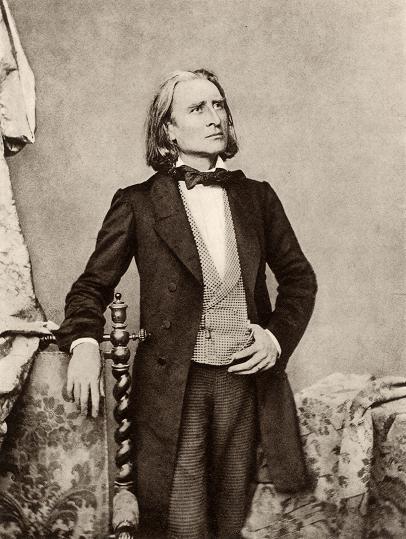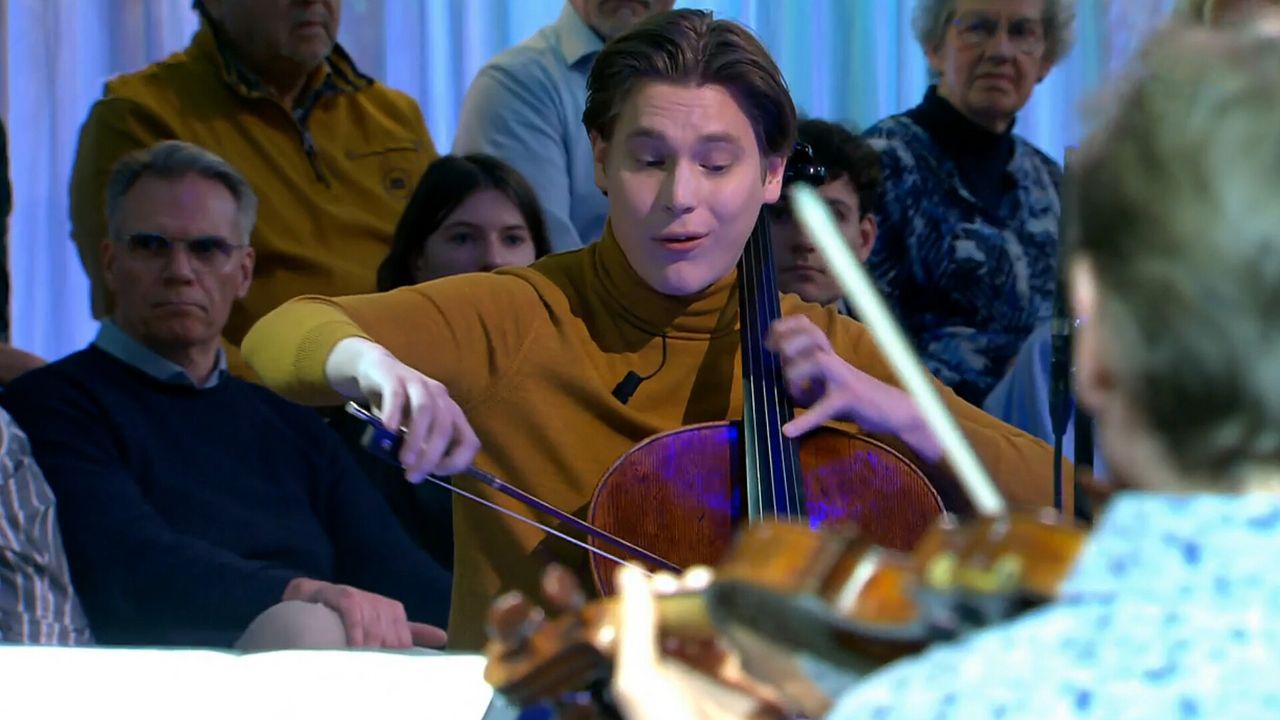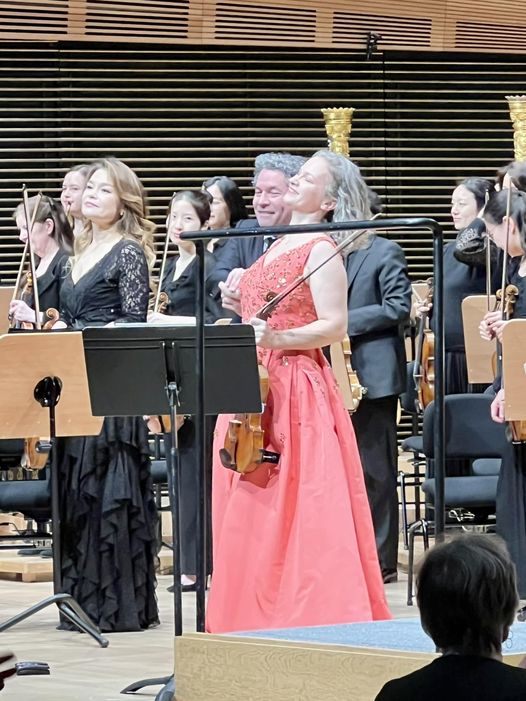Going Dutch: An international competition is now non-competitive
NewsMake of this press release what you will.
After Liszt Utrecht (formerly known as the International Franz Liszt Piano Competition) was cancelled in March 2020 due to covid restrictions, a new edition will finally take places from 22 – 29 September in Utrecht, the Netherlands. Ten selected pianists from all over the world will perform the most touching and virtuosic piano music of Franz Liszt. As of this edition, Liszt Utrecht will put less emphasis on the competitive element and offer the pianists more possibilities to present their talents in different ways.
Watch Liszt Utrecht online
Audiences around the world won’t miss a single note as each concert of the competition can be rewatched the day after on YouTube (lisztcompetition). Furthermore, all evening concerts plus the Grand Finale will be streamed live on the same channel.
Festival phase
During the festival phase (22 – 26 Sept) each of ten pianists will present four different concerts: one with original works, one with chamber music, one with songs, and one with piano transcriptions. During the song recital all will perform a newly commissioned song written by the Dutch composer Mathilde Wantenaar, performed in collaboration with soprano Bernadeta Astari.
The festival provides listeners with known and unknown works of Franz Liszt, as well as a range of works from Franz Schubert to commemorate his 225th birthday. These works include his famous Trout Quintet during the chamber music round, and his songs during the transcriptions round. Schubert was one of Liszt’s big idols.
Grand Finale
Three pianists will be selected after the festival to perform during the Grand Finale of Liszt Utrecht on Thursday the 29th of September in de Main Hall of concert venue TivoliVredenburg. Here they will perform Schubert’s Wanderer Fantasy with the Netherlands Radio Philharmonic Orchestra conducted by Christian Reif. The winner will be announced at the end of this evening and will also perform on the 2nd of October with the Netherlands Radio Philharmonic Orchestra in the Concertgebouw Amsterdam.
First prize: € 25.000
2x runner-up prize: € 10.000
Audience award: € 2.500
The three winners will also receive an extended career development support including about a hundred concerts around world.
Dutch talent
Besides the 10 international pianists, Liszt Utrecht for the first time offers a stage for upcoming Dutch piano talent (up to 23 years old) in a series of NLiszt concerts. One of these pianists will be selected to perform with the Netherlands Radio Philharmonic Orchestra during the Grand Finale of Liszt Utrecht.
Participants, musicians and jury
The following pianists participate during Liszt Utrecht: Viktoria Baskakova, Minkyu Kim, Yukine Kuroki, Tamta Magradze, Matyáš Novák, Yeon-min Park, Leonardo Pierdomenico, Vitaly Starikov, Derek Wang, KaJeng Wong, and Dutch pianists Philip Karmanov, Youngjae Kim, Alfredo van de Munt and Radu Ratering.
They are observed by an international jury, consisting of pianists Suzana Bartal, Frederic Chiu, Janina Fialkowska, Nino Gvetadze, Michael Lewin, Mūza Rubackytė, Wibi Soerjadi, Mariangela Vacatello, and head of the jury Cynthia Wilson.






Goodness gracious, what a load of mindless, convoluted babble.
A competitive competition, pretending not to be a competitive competition, is a competitive competition.
More possibilities to present their talents? Would that include performing whilst being dangled upside down by a crane? Or a baking round?
In any case, this looks like a serious snooze fest. Will not be tuning in.
Nice to see one of my Imola students participating.
I find it an intriguing concept. The proof of the pudding will be in the eating. I’ll certainly sample at least some of the youtube videos.
Agreed!
“Liszt Utrecht will put less emphasis on the competitive element and offer the pianists more possibilities to present their talents in different ways.” What is confusing about that? It is not saying (as per the SD headline) that it ceases to be a competition. Perhaps, however, some journalist could find out how the 10 international pianists were selected?
Many sports tournaments are “invitationals”. It doesn’t mean that they aren’t competitions, just that the roster is not wide open to anyone who wishes to participate.
What nonsense. Go woke Go broke
The Liszt Competition is a game-changer in a world plagued by corruption and political maneuvering in the realm of classical music competitions. Despite some criticism, the competition is breaking away from the tradition of these contests as opaque and subjective blood sports. Instead, it’s shining a light on the future of classical music, offering a new and refreshing approach that aims to rectify the many issues prevalent in today’s piano competitions.
In these contests, even the most talented young musicians, who are on the cusp of greatness, are often disregarded by subjective jury decisions influenced by personal connections and petty rivalries. A perfect example of this is the 2020 Chopin Competition, where the winner, Bruce Liu, was the student of the very jury chairman who presided over the contest. Meanwhile, awe-inspiring artists like Kyohei Sorita or Dmytro Choni at the Leeds are overlooked, their brilliance shadowed by the taint of nepotism and bias.
However, even competitions that produce a winner who truly stands above the rest, such as Yunchan Lim at the 2022 Cliburn, are not immune to outside influences. In this case, the final outcome was influenced by the jury chair and conductor Marin Alsop, who used her power to sway the results in Lim’s favor. (Marin is a wonderful person and a gifted artist, but there is no denying that her orchestra performed significantly better during Lim’s performance compared to other finalists. If you’re participating in the competition as a conductor, you shouldn’t have a deciding vote in who wins.)
The renowned pianists Vladimir Horowitz and Bartok once denounced piano competitions as unworthy of artists, with Horowitz saying “I’m absolutely against piano competitions!” and Bartok famously declaring, “Competitions are for horses, not artists.” Yet, for young artists who don’t have connections helping them establish themselves, competitions are the best way we’ve come up with for young artists to get exposure, and opportunities, and potentially sign contracts with major labels and management agencies. It’s an imperfect system, but the way things are in our world, and good that Leslie Howard and the Liszt competition are doing something different here.
In a world where such contests are often marred by corruption and political maneuvering, the Liszt Competition shines like a beacon of hope. With its innovative approach and international prestige, it offers pianists a platform to showcase their talents in new and captivating ways, breaking free from the constraints of the past and leading the charge toward a new era of classical music. This refreshing model, a blend of traditional and innovative elements, is a ray of hope in an otherwise dark world and a powerful tool for discovering the next generation of musical geniuses. One can only imagine that Horowitz himself would have been more intrigued and enthused by the Liszt Competition’s approach than the Leeds, Chopin, Tchaikovsky, or any of the other major competitions.